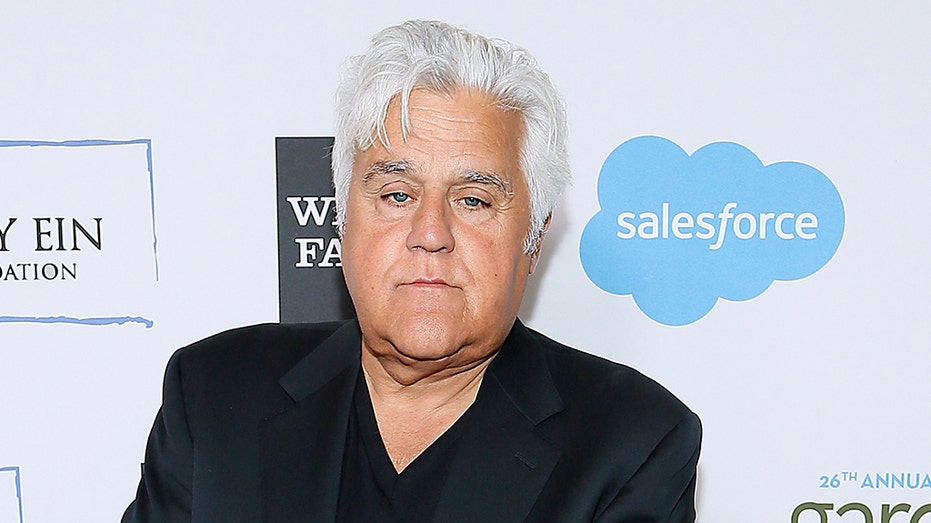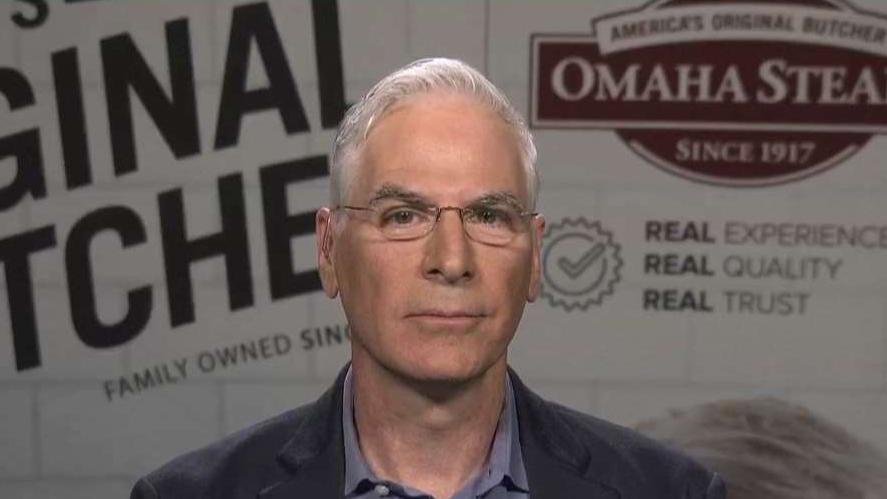How Jay Leno and 8 business titans bounced back from the worst moments of their careers
Errors and bad circumstances need not lead to failure.
Even the most successful people make mistakes or can be victims of unfortunate situations — but errors and bad circumstances need not lead to failure. We asked superstar comedian Jay Leno and eight Advisors in The Oracles about the worst moments of their careers. Here's what they learned and how they bounced back.
GET FOX BUSINESS ON THE GO BY CLICKING HERE
1. I took Johnny Carson's advice.
Not being funny enough was my biggest failure. When I started doing stand-up comedy, I was a better performer than a writer. I could get a laugh with a joke that wasn’t necessarily good just by saying it in a funny way with my gestures and loud delivery.
“The Tonight Show” former host Johnny Carson gave me the best advice I ever received in show business. To hone and test my new jokes, he told me to read them in a boring, monotone voice at the end of each set. If the audience laughed, I knew they were truly funny, and I could perform the joke as I normally would next time. A joke should work on two levels: because it’s funny intellectually and because the performance is funny visually. —Jay Leno

Jay Leno (Photo by Paul Morigi/Getty Images)
2. I claimed ownership of a tragedy and earned respect.
One of the worst moments of my career in the U.S. Navy happened in Ramadi, Iraq, in 2006. Friendly fire broke out, killing one of our Iraqi soldiers and wounding several other men. This travesty was the result of human mistakes, the confusion of war, and bad luck. But it happened under my command.
I felt sick. Everything I’d done in my career to establish a solid reputation became meaningless. When my commanders demanded an explanation, instead of making excuses and passing blame, I took full responsibility for what went wrong. It was a blow to my ego, but the right and the only thing to do — even though it could’ve meant getting fired.
Taking extreme ownership increased my commanders’ trust in me, despite what happened. My team did not expect me to take the blame and respected that I did. We vowed it would never happen again, analyzed the situation, revised our standard operating procedures, and undoubtedly saved lives. —Jocko Willink, retired U.S. Navy SEAL officer, No. 1 New York Times bestselling author, co-founder of Echelon Front, partner in Origin USA, and host of the top-rated “Jocko Podcast”
3. I changed my mindset.
A few years ago, our blackberry-flavored still water was in Starbucks nationwide. One day, Starbucks called to say that they no longer wanted to stock Hint because they wanted to make room for higher-margin foods. That was fine, but what was I going to do with the millions of dollars’ worth of product in the warehouse?
A few days later, I got a call from Amazon, which was about to launch food and beverages on-site. One of their buyers tried Hint at Starbucks, and they wanted in. They bought all the inventory we had set aside for Starbucks. What did I learn? What started as a great situation got worse, but then it got better. I got through it with a mindset of always knowing that it will get better — and hoping it happened sooner than later. —Kara Goldin, founder and CEO of Hint Inc.; creator of The Kara Network, a digital resource for entrepreneurs; and host of the “Unstoppable” podcast; follow Kara on Twitter and Instagram
4. I realized the importance of doing your own research.
My biggest mistake was assuming that something should be done a certain way because that’s how it had always been done. When I was a personal trainer, gyms paid me as an independent contractor
instead of an employee. So when I started my own gyms, I followed their model. But when my revenues exceeded seven figures, the labor board told me that my contractors should be classified as employees. That mistake cost me around $100,000 in fines and legal fees.
Just because business has been done a certain way doesn’t mean it’s right — or even legal. Research everything yourself. Stay diligent. Consult an attorney and HR team to ensure all your I’s are dotted and your T’s are crossed. It’s okay to have a setback — just don’t let it fully set you back. Jump right back in the saddle so you come back. —Sam Bakhtiar, CEO of The Camp Transformation Center and One Percent Nutrition, and host of the “One Percenter Podcast”; connect on Facebook, Instagram, and YouTube
WANT TO BE THE NEXT MARTKK ZUCKERBERG? MAYBE THIS CALENDAR APP WILL HELP
5. I started a company that reflected my mentality.
The biggest mistake I made when I left the military was believing that I could “civilian” well. As I started over in my career, I assumed everyone would work as hard as we did in the military — but I was wrong. Instead, I found a culture built on doing the bare minimum to collect a paycheck. There was no motivation to finish the job, which I didn’t understand. When I stayed late until I finished my work, I was accused of “stealing” overtime. I responded that that was stupid; apparently that’s how you get fired.
So I started building my own companies instead. I could apply my military principles and work ethic to the realm of business. Now I get to instill pride in my team and train them to accomplish their mission and lead others. We use that mission mentality to help our clients grow their businesses. —Patch Baker, founder and CEO of Mobius Media Solutions; former U.S. Marine, with a mission to help people leave the military today and not feel abandoned tomorrow
6. I learned not to overinvest.
My biggest business failure was Film Screener, a site where independent filmmakers could rent out their movies. We thought we were going to change the world. I spent tens of thousands of dollars I’d saved on developers without even launching the site. I learned that you’re supposed to test the market’s need for your product before you spend all your money building it. I didn’t realize there were already tons of competitors.
So when we started Manly Bands, I built our first website and did the Facebook advertising myself. We tested everything — for example, running small experiments to see which ads performed best, tweaking them, and iterating. We started with just $20, then spent a bit more once we knew it worked. We always made sure to break even and only reinvested into the business with money the business made. The process took a while, but we knew we had a proven concept, rather than just hoping it would work. —Johnathan Ruggiero, co-founder and CEO of wedding band company Manly Bands; read how Johnathan quit his job, moved cross-country, got married, and started a business in a month here; connect with Johnathan on LinkedIn
7. I bounced back and built a stronger business.
In the early days of my real estate company, I purchased a property with over 50 units in a bustling part of Houston, Texas. But I had a problem: oil prices plummeted shortly after, which impacted many of our residents’ jobs, so they left town.
While this property was only in the Rockstar portfolio for roughly three years, it taught us so much. The property had an established website, social media accounts, and online analytics; so we learned how to bring in business by building a brand with a stellar online reputation. We used what we learned to create the brand that Rockstar is today. I believe we have the best online reputation in the city and are the only ones innovating and branding our properties at such a breakneck pace. We wouldn’t be where we are if we hadn’t gone through that stage in our evolution. —Robert Martinez, founder and CEO of Rockstar Capital, a real estate investment firm with $348 million in assets under management; host of “The Apartment Rockstar” podcast; follow Robert on YouTube and Instagram
8. I learned to trust myself.
The biggest mistake I made in business and life was failing to back myself unapologetically and fully trust the voice within. We all have something inside that knows what’s right for us. Your soul already has the blueprint for everything you need to know, do, and say to achieve your desired outcomes. It’s a matter of continuing to learn.
Everything you do should be because it feels right for you, not because someone said it is. There is a sense of calm and certainty when something aligns for you, your soul, who you really are, and who you want to be. Looking back, I realize that veering from my truth cost me years in business and life — and a lot of money. But I gained the ability to trust myself and create my life accordingly. — Katrina Ruth, founder and CEO of “The Katrina Ruth Show,” a multimillion-dollar online coaching business for entrepreneurs; connect with Katrina on Facebook, Instagram, and YouTube; read more about Ruth: She Chose Tattoos Over Traditional Success.
9. I realized failure was part of the process.
One of the turning points in my career was when Facebook unexpectedly shut down our advertising account. The platform has strict rules for weight loss products, and we must’ve shared something they didn’t like. I was generating millions in revenue per year, mostly from Facebook ads, so this was a big hit. Like most adversity in life, this situation forced me to change, and I started a new marketing agency that’s even more successful and fulfilling than the last one.
CLICK HERE TO READ MORE ON FOX BUSINESS
In business and life, failure will happen. The faster you run, the farther you’ll fall. So if you want to do big things, don’t try to avoid failure. It’s about how to cope with it, learn from it, and ensure your failures aren’t so catastrophic that you can’t recover. You never truly fail unless you fail to get back up and keep going. —Rudy Mawer, founder and CEO of ROI Machines and RudyMawer.com; Facebook marketing and ad expert, who built a multimillion-dollar business by age 26; connect with Rudy on Instagram
Want to share your insights in a future article? Join The Oracles, a mastermind group of the world’s leading entrepreneurs who share their success strategies to help others grow their businesses and build better lives. Apply here.
For more free business insider advice, follow The Oracles on Facebook, Twitter, and LinkedIn.




















